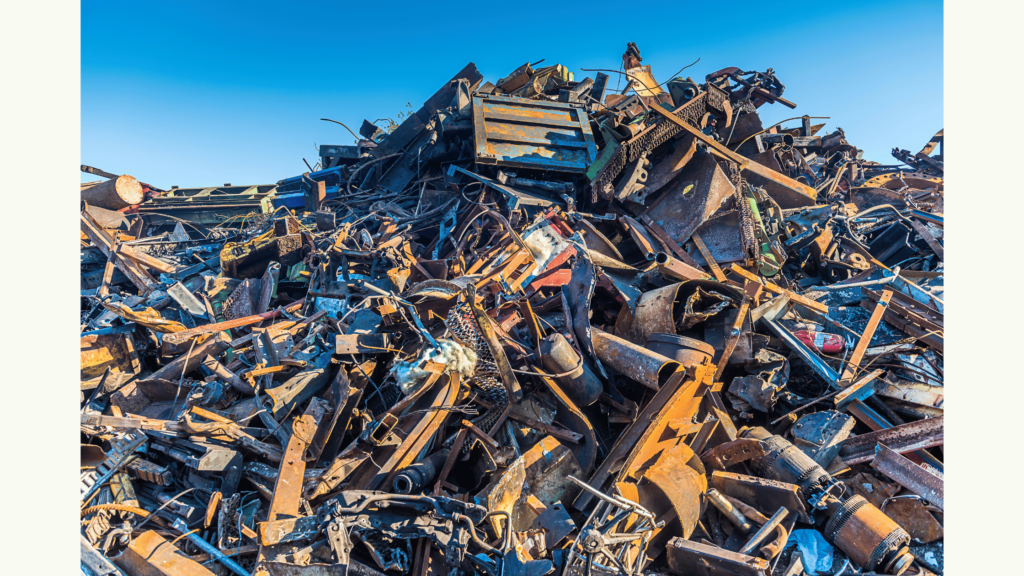Introduction:
In the midst of India’s economic evolution, businesses are seeking innovative ways to enhance their bottom lines while contributing positively to the environment. Scrap recycling has emerged as a transformative solution, aligning environmental responsibility with economic gains. As businesses strive for sustainability, the role of a scrap recycling company becomes pivotal in this journey. Let’s explore how embracing scrap recycling can offer significant economic advantages for businesses in India.
Cost Savings through Resource Efficiency
In a country where resource management is crucial, businesses can achieve substantial cost savings by integrating scrap recycling into their operations. According to Rockwool, recycling within a business model enhances resource efficiency, leading to reduced raw material consumption. This not only lowers procurement costs but also minimizes the environmental impact associated with resource extraction.
Revenue Generation from Scrap Sales
One of the immediate economic benefits that businesses can realize through scrap recycling is revenue generation from the sale of recycled materials. Scrap metal, for instance, holds significant market value. According to GLE Scrap Metal, selling recyclable scrap contributes directly to a business’s revenue stream. This additional income can be reinvested in the company, fostering growth and diversification.
Regulatory Compliance and Risk Mitigation
In the ever-evolving regulatory landscape, adherence to environmental standards is non-negotiable. Integrating scrap recycling practices ensures that businesses remain compliant with environmental regulations, averting potential fines and legal complications. Moreover, proactive engagement in sustainable practices serves as a shield against reputational risks, enhancing the brand image in the eyes of stakeholders.
Job Creation and Community Engagement
Beyond the immediate financial gains, businesses investing in scrap recycling contribute to the socio-economic fabric of their communities. Recycling operations necessitate skilled and unskilled labor, creating job opportunities. This not only reduces unemployment but also fosters community engagement, positioning the business as a responsible corporate citizen.
Enhanced Supply Chain Resilience
The economic benefits of scrap recycling extend to supply chain resilience. Businesses relying on a consistent supply of raw materials can face disruptions due to various factors. By incorporating recycled materials into their supply chains, companies create a buffer against the volatility of commodity markets, ensuring a more stable and resilient business environment.
Energy Savings and Carbon Footprint Reduction
Energy costs are a significant concern for businesses across sectors. Recycling often requires less energy than extracting and processing raw materials. As highlighted by Miller Recycling, incorporating recycled materials into production processes leads to energy savings. Additionally, businesses can proudly communicate their reduced carbon footprint, appealing to environmentally conscious consumers.
While the economic benefits of scrap recycling for businesses in India are evident in tangible metrics, there are intangible gains that contribute to long-term success. These intangible benefits can be just as crucial for a business’s sustained growth and positive impact on society.
Corporate Social Responsibility (CSR) Enhancement
Incorporating scrap recycling into business practices aligns with the principles of Corporate Social Responsibility (CSR). Businesses that actively engage in sustainable practices, including recycling initiatives, bolster their CSR profiles. This not only resonates positively with consumers but also attracts socially responsible investors, opening up avenues for financial support and partnerships.
Innovation and Market Differentiation
A commitment to scrap recycling can foster innovation within a business. As companies explore ways to recycle and repurpose materials, they often stumble upon innovative solutions that can be applied across their operations. This culture of innovation not only positions the business as a market leader but also differentiates it from competitors, attracting environmentally conscious consumers.
Long-Term Resource Security
In a world marked by resource scarcity and fluctuating commodity prices, businesses that invest in scrap recycling gain a degree of long-term resource security. By reducing dependence on virgin materials, companies insulate themselves from the impacts of resource shortages and price volatility, ensuring a stable and predictable cost structure over time.
Stakeholder Trust and Brand Loyalty
Trust is a currency that businesses can’t afford to lose. Embracing scrap recycling communicates a commitment to sustainable business practices, earning the trust of consumers, employees, and investors alike. This trust, once established, translates into brand loyalty. Customers are more likely to choose products and services from companies they perceive as environmentally responsible, contributing to long-term customer retention.
Conclusion: A Holistic Approach to Economic Prosperity
In conclusion, the economic benefits of scrap recycling for businesses in India extend far beyond immediate financial gains. The intangible advantages, such as enhanced CSR, innovation, long-term resource security, and stakeholder trust, contribute to the holistic prosperity of a business. As India charts its course toward sustainable economic development, companies that integrate scrap recycling into their strategies position themselves not just for financial success but as drivers of positive change in the global business landscape. By embracing the economic and intangible benefits of scrap recycling, businesses can pave the way for a more sustainable and prosperous future.












